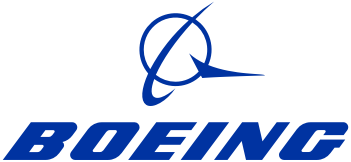
Enrol on this course
Please use the region selector at the top of the website if you are purchasing from outside the UK.
Note: *All prices exclusive of VAT.
Choose your Scrum Product Owner certification route
Not sure which route to choose? If your employer already prefers one, it’s usually best to follow the same.
Overview
Product Owners play a key role in Scrum by shaping priorities and maximising value from the work the team delivers. This course gives you practical skills to manage the product backlog, collaborate with stakeholders, and make confident prioritisation decisions.
What you will gain
- A clear understanding of the Product Owner role in Scrum
- Practical prioritisation techniques you can use immediately
- Skills for stakeholder collaboration and expectation management
- Confidence to refine and communicate backlog items effectively
- Exam readiness for your chosen certification route
Who this course is for
- Aspiring or new Product Owners moving into the role
- Product managers and business analysts working in Scrum Teams
- Project managers transitioning into agile product delivery
- Subject matter experts supporting product decisions and priorities
- Anyone responsible for defining and prioritising work in Scrum
Benefits
Value-focused thinking
Better prioritisation
Clear stakeholder alignment
Backlog confidence
Real-world decision making
Recognised certification
Delivery
This Product Owner course is delivered as a live, instructor-led online classroom. You’ll learn with an expert trainer, practise real prioritisation scenarios, and leave ready to perform the role effectively.
Course
You’ll learn how Product Owners define and communicate value, collaborate with stakeholders, and keep the team focused on the most important work - using Scrum practices that support clarity, prioritisation and transparency. Learning outcomes:
Understand the Product Owner role
Prioritise for value
Manage and refine the backlog
Work effectively with stakeholders
Support Sprint goals and planning
Prepare for certification

Curriculum
The Scrum Product Owner courses cover all the topics of the Scrum Guide as required by the accreditation bodies.
Scrum fundamentals
- Scrum roles, events and artifacts
- Scrum principles and the Scrum Guide
- How Scrum supports iterative delivery
The Product Owner role
- Responsibilities, boundaries and accountability
- Working with the Scrum Master and Developers
- Common Product Owner challenges
Value, product goals and outcomes
- Defining value and outcomes
- Setting and communicating product goals
- Making trade-offs and prioritisation decisions
Backlog management and refinement
- Creating and ordering backlog items
- Refinement techniques and acceptance criteria
- Keeping the backlog transparent and actionable
Stakeholder collaboration
- Engagement and expectation management
- Communicating priorities and decisions
- Working in real organisational contexts
Planning and delivery support
- Supporting Sprint Planning and Sprint goals
- Feedback loops and iterative improvement
- Practical scenarios for day-to-day Product Ownership

Exam
Scrum.org Professional Scrum Product Owner exam (PSPO I)
- Style: Multiple-choice
- Questions: 80
- Pass mark: 85% (68/80)
- Duration: 60 minutes
- Materials allowed: Closed-book
- Prerequisites: None
- Exam registration: Obtained when attending the course
- Exam password: You receive a password to take the PSPO I assessment by email. All students on Scrum Product Owner courses are emailed a password upon completion of the course.
Scrum Alliance Certified Scrum Product Owner (CSPO) exam
- There is no exam pass required to gain CSPO certification
- CSPO certification is obtained by attending the full course
- The CSPO certificate is issued 2 days after attending the CSPO training.
Your path to success
Knowledge Train by numbers
FAQs
Which Product Owner certification route should I choose?
Scrum.org and Scrum Alliance are both widely recognised Product Owner routes. In most cases, either is a good choice. If your organisation already has a preferred route (or colleagues already hold one), it’s usually best to follow that for consistency. If you’re booking as an individual, choose the route that best fits your goals — and if you’re unsure, we can help you decide.
Do Product Owner qualifications follow the Scrum Guide?
Yes. The Scrum framework is defined by the Scrum Guide, and recognised Product Owner qualifications are based on the same core roles, events and artifacts. The exam style and supporting materials can vary by awarding body, but the underlying Scrum knowledge is consistent.
Can I take this course if I’m new to agile?
Yes. This course is suitable for people new to Scrum and agile. You’ll learn the Scrum fundamentals and then focus on the Product Owner responsibilities and practical techniques. If you want a lighter introduction first, you can start with Scrum Essentials.
Is this course suitable for business analysts or product managers?
Yes. Many business analysts and product managers take Product Owner training to strengthen prioritisation, stakeholder collaboration, and backlog management skills in Scrum environments.
What’s included in the course price?
What’s included depends on the route you choose, but typically you’ll receive the live instructor-led training, course materials, and exam preparation support aligned to your route. Full inclusions are shown during booking, and we’ll confirm exactly what’s included before you enrol.
Do you offer private/team Product Owner training?
Yes. We deliver private Product Owner training for organisations and can tailor scheduling and emphasis to your context. We can also advise on the best certification route for your organisation.
Can I study alongside a full-time job?
Yes. Many learners take this course alongside work. Instructor-led online training runs on scheduled dates, and you’ll be guided on how to prepare efficiently alongside your day job. If you need a different schedule, team training may be a better fit.
Still have questions? Contact us by phone on 0207 148 5985, via live chat, email, or by completing the form below.
How to find us
Knowledge Train
20 Old Bailey, London, EC4M 7AN,
England, United Kingdom.
Call +44 (0)207 148 5985
Opening hours
Monday to Friday – 09:00 to 17:15
Get in touch
Understanding Product Owner Certification
Product Owner Certification demonstrates a professional’s ability to guide Agile teams through effective backlog management and stakeholder collaboration within the Scrum framework.
Why Pursue A Product Owner Certification?
Achieving certification helps product owners validate their Agile project management skills, enhance career prospects, and align with recognised industry standards.
What Does The Certification Exam Involve?
The certification exam typically assesses understanding of Scrum, Agile principles, and the responsibilities of a product owner within cross‑functional teams.
Agile Product Owner Certification Pathways
There are multiple Agile product owner certification pathways that cater to different experience levels and learning preferences.
Professional Product Owner Certification Options
Professional Product Owner Certification courses often include practical training, simulations, and guidance from experienced Scrum trainers.
How To Choose The Right Product Owner Course?
When selecting a product owner course, consider the credibility of the provider, course format, and alignment with your career goals.
Product Owner Certification Online And Classroom Learning Formats
Many learners prefer an online product owner course for flexibility, while others benefit from in‑person training that fosters collaboration and real‑time feedback.
Key Skills For Certified Product Owners
Certified product owners need strong communication, prioritisation, and stakeholder management skills to deliver maximum product value.
Skills Developed During Product Owner Training
Training helps participants understand Agile frameworks, learn about product vision, backlog refinement, and sprint planning within Scrum.
How Certification Supports Agile Teams?
Certified product owners enhance Agile teams by ensuring clarity of goals, managing resources effectively, and maintaining focus on user value.
Preparing For The Product Owner Certification Exam
Preparation for the certification exam involves focused study, practical exercises, and understanding real‑world applications of Agile project management.
Recommended Resources For Exam Readiness
Candidates can use official Scrum guides, online resources, and practice exams to strengthen their knowledge base and confidence.
Common Challenges Faced By Candidates
Many candidates find balancing theory with hands‑on learning challenging but rewarding once concepts are applied in real projects.
- Review Scrum framework fundamentals thoroughly.
- Understand product owner responsibilities clearly.
- Apply Agile project management techniques effectively.
Benefits Of Product Owner Certification Training
Completing certification training improves confidence, enhances employability, and demonstrates commitment to professional development in Agile environments.
Product Owner Certification Impact On Career And Salary
Product owner credentials often lead to higher salary potential and wider recognition within management and project leadership roles.
How Organisations Benefit From Certified Product Owners?
Organisations benefit when certified product owners facilitate collaboration, reduce delivery risks, and align teams around strategic business goals.
Advancing Your Career With Professional Product Owner Credentials
Professional product owner credentials signal a learner’s readiness to manage complex product lifecycles and support sustained Agile transformation.
Continuous Learning After Certification
After earning certification, ongoing learning through workshops and Agile communities ensures skills remain relevant in 2026 and beyond.
Building Networks In Agile Project Management
Networking with other managers and practitioners helps certified professionals share insights, resources, and evolving best practices.










